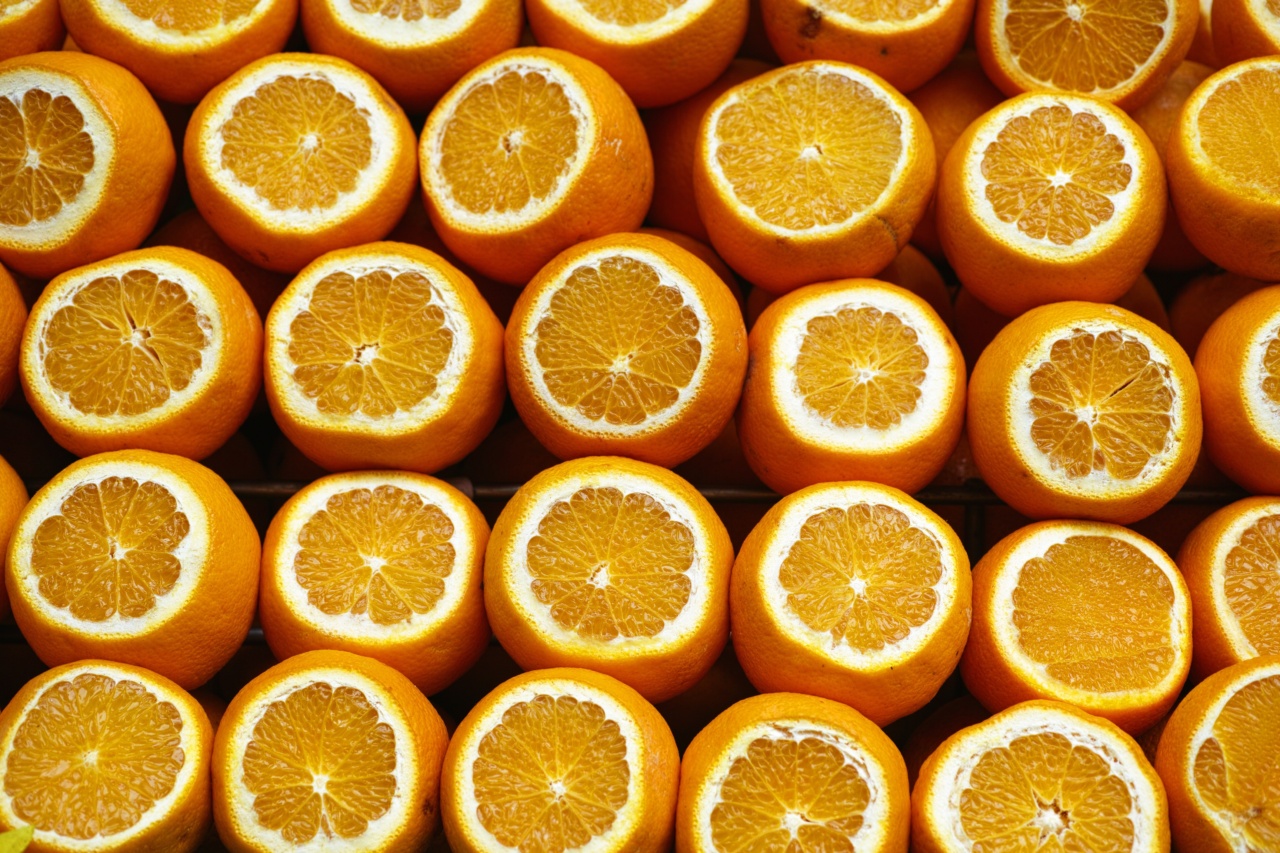Asthma is a chronic respiratory condition that affects millions of people worldwide. It is characterized by inflammation and narrowing of the airways, leading to symptoms such as wheezing, coughing, chest tightness, and shortness of breath.
While medication plays a crucial role in managing asthma, certain dietary changes can also help reduce symptoms and improve overall lung function. In this article, we will discuss the foods you should cut out of your diet to alleviate asthma symptoms.
1. Dairy Products
Dairy products, including milk, cheese, and yogurt, are common triggers for asthma symptoms. The proteins found in dairy can cause mucus production and increase inflammation in the airways.
Many asthmatics find that reducing or eliminating dairy from their diet leads to a decrease in respiratory symptoms. If cutting out dairy entirely is challenging, it is recommended to opt for low-fat alternatives or explore non-dairy options such as almond milk, soy milk, or coconut milk.
2. Processed Foods
Processed foods like chips, burgers, pre-packaged meals, and fast food contain high levels of trans fats, sodium, and artificial additives. These substances can contribute to inflammation and worsen asthma symptoms.
A study published in the journal Thorax found that a high intake of processed foods was associated with an increased risk of developing asthma symptoms in children. To reduce symptoms and improve lung health, it is essential to limit or avoid the consumption of processed foods.
3. Sulfites
Sulfites are food additives commonly found in wine, dried fruits, pickles, and processed meats. They are known to trigger asthma symptoms in susceptible individuals. Sulfites can cause bronchial constriction and worsen respiratory function.
It is recommended for asthmatics to read food labels carefully and avoid foods containing sulfites to minimize the risk of triggering an asthma attack.
4. Salicylates
Salicylates are natural compounds found in various fruits, vegetables, and spices. While most people can tolerate salicylates without any issues, some asthmatics may be sensitive to these compounds and experience worsening of symptoms.
Foods high in salicylates include berries, citrus fruits, tomatoes, and peppers. Keeping a food diary and noting any worsening of symptoms after consuming these foods can help identify if salicylates are a trigger for your asthma.
5. Seafood
Seafood, especially shellfish, can be problematic for individuals with asthma. It is a common allergen that can induce severe allergic reactions, including asthma attacks.
The protein in shellfish can trigger an immune response, leading to airway inflammation and respiratory distress. If you have asthma, it is advisable to avoid consuming seafood or consult with an allergist to determine if you have any specific allergies.
6. Caffeine and Alcohol
Both caffeine and alcohol have been linked to increased asthma symptoms in some individuals.
Caffeine acts as a bronchodilator and can temporarily improve airflow, but excessive consumption may lead to tolerance and dependence, making asthma symptoms worse in the long run. Similarly, alcohol can trigger asthma symptoms in some people, possibly due to its dehydrating effect and the presence of substances like sulfites and histamines. Moderation or avoidance of caffeine and alcohol is recommended for asthmatics.
7. High-Sodium Foods
High-sodium foods, such as processed meats, canned soups, and fast food, can contribute to fluid retention and worsen asthma symptoms.
Excess sodium intake leads to fluid buildup in the airways, increasing the likelihood of wheezing and shortness of breath. It is crucial to minimize the consumption of high-sodium foods and opt for fresh, whole foods prepared at home with minimal salt.
8. Food Colorings and Additives
Artificial food colorings and additives, such as tartrazine (Yellow 5) and monosodium glutamate (MSG), have been reported to trigger asthma symptoms in some individuals.
These additives may cause respiratory issues, including wheezing and difficulty breathing. It is advisable to avoid foods containing artificial colorings and additives and opt for natural, unprocessed alternatives.
9. Nuts and Seeds
While nuts and seeds are generally considered healthy, some individuals with asthma may have an allergic reaction to them. Allergies to tree nuts and peanuts are common and can trigger severe asthma symptoms.
It is essential to be aware of your specific allergies and avoid nuts or seeds if you experience any adverse reactions. Consulting with an allergist and conducting allergy tests can help identify any potential culprits.
10. High-Sugar Foods
High-sugar foods like desserts, sugary beverages, and sweets can contribute to inflammation and weaken the immune system. An imbalanced immune response can exacerbate asthma symptoms and increase susceptibility to respiratory infections.
To manage asthma effectively, it is advisable to limit the consumption of high-sugar foods and focus on a balanced diet rich in fruits, vegetables, whole grains, and lean proteins.
By avoiding or minimizing the consumption of these trigger foods, individuals with asthma can potentially reduce the frequency and severity of their symptoms.
It is important to consult with a healthcare professional or registered dietitian before making significant changes to your diet, as they can provide personalized guidance based on your specific needs and medical history.





























